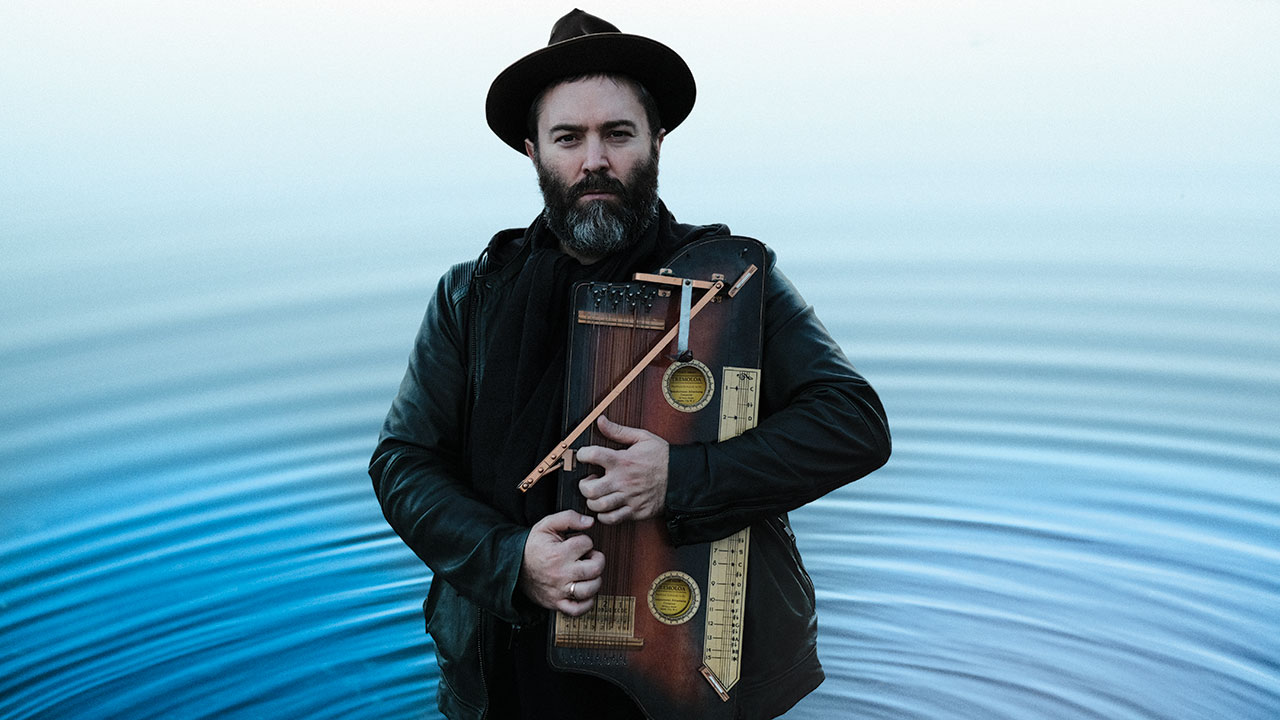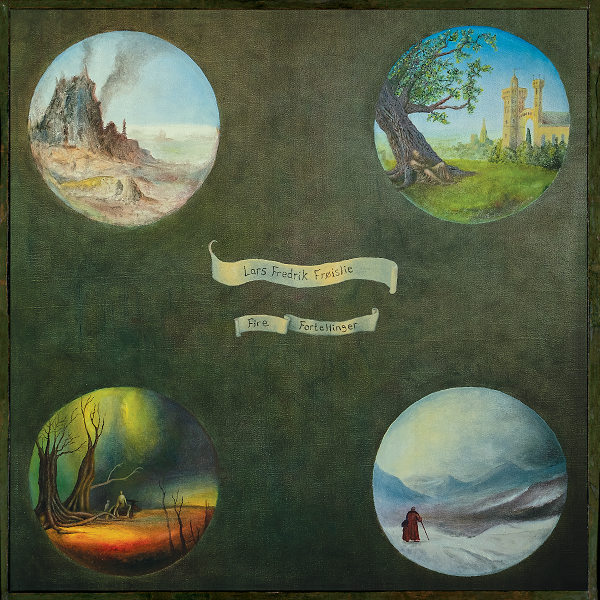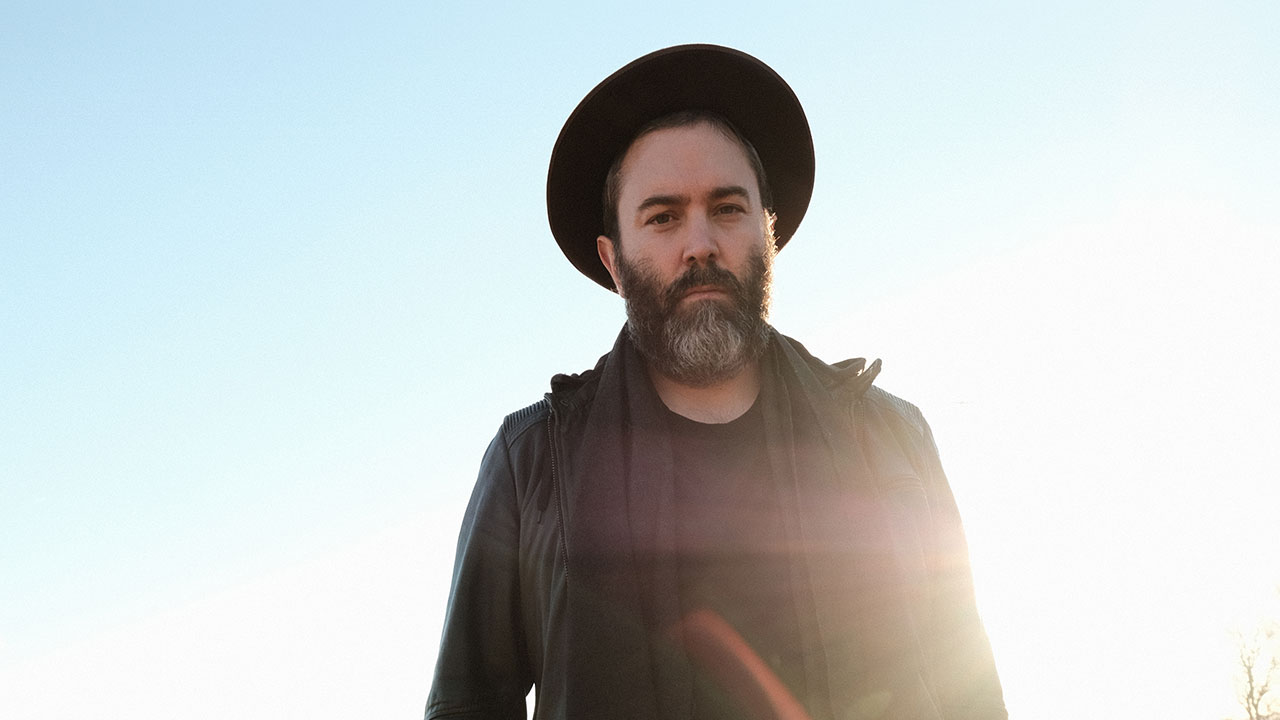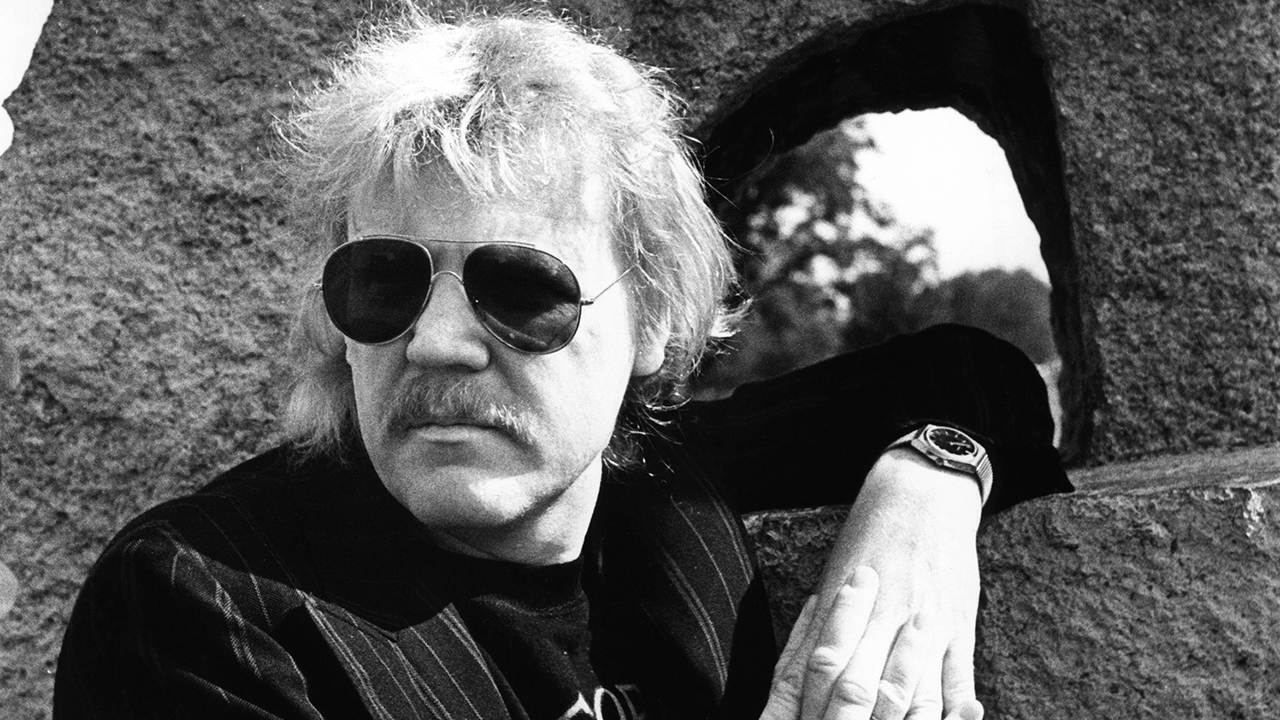"It’s a completely different thing to a band where I’m hiding in the back." Lars Fredrik Frøislie and the story of his debut solo album Fire Fortellinger
Wobbler's defiantly old school keyboard player Lars Fredrik Frøislie finall went solo with his debut solo album Fire Fortellinger

Back in 2023, Wobbler’s keyboard mastermind Lars Fredrik Frøislie spoke to Prog about singing in his native tongue and staying sane with his solo album, Fire Fortellinger
“That was scary, man. Really,” says Lars Fredrik Frøislie.
As the keyboard wizard of Norway’s brilliant Wobbler, composer for film and TV, and a producer, Frøislie is a seasoned, accomplished musician. But with his solo debut Fire Fortellinger, he not only plays everything but the bass himself, he sings too. “I’ve only done backing vocals before,” says Frøislie. “Just to release a solo album under my name is scary.
I had no idea what people would think so it’s rather frightening. It’s a completely different thing to a band where I’m hiding in the back. Here I am really in the front.”
Fire Fortellinger, or ‘Four Stories’, was born from the restrictions of lockdown. With nowhere to go and temporarily detached from his Wobbler bandmates, Frøislie started making music in his home basement studio. It was, he says, “to keep my sanity.” Working alone was a contrast to Wobbler’s creative process, but that’s what Frøislie wanted.
“In a band it’s very democratic,” he says, “and for the last three albums, we’ve jammed and worked off each other. You present one riff and then another… how about this? And it can take forever, for good or bad, but on this solo project, I wanted to make it spontaneously and quickly, not ponder too much, just go with my gut feelings.”
Initially, Frøislie started with no greater intent than to put down some ideas he could develop at a later date.
“Thank God I had the good preamps and everything set up, so I could keep those takes,” he says. “I improvised and things happened, and it would be completely wrong to try to recreate something I’ve improvised, the spontaneous thing would be lost. I was very relaxed because I was thinking: this is just
a test, it’s a demo, so I’m having fun. I think you can hear I’m having fun. Plus, my studio computer was broken, so I basically had no plug-ins. I only had the analogue keyboards and stuff and a basic recording computer, so I had to do it very old school. No click tracks, no MIDI, but that made it organic.”
Sign up below to get the latest from Prog, plus exclusive special offers, direct to your inbox!

As the music developed, Frøislie went back and forth from drums to keyboards, capturing ideas as the muses whispered in his ears, deploying an arsenal that includes a harpsichord, Mellotron, Minimoog, Yamaha CP70 and Hammond organ.
“I’m a huge fan of these old keyboards, plus that’s what I had in my basement, so I had to use them,” he says. “But I love the sound. Like the harpsichord, it’s hell, basically. You’re tuning it for two days and it goes out of tune in one day. The same with the piano. Then again, that piano is sort of out of tune because I was thinking, this is just a test. But I think it’s charming. It’s not supposed to be perfect. The Mellotron is not in perfect pitch, but that’s the point. There’s too much perfection these days.”
He compares the Mellotron to an old, rundown car. “There are oil spills, you have to push it to get going sometimes,” he says. “You’re working on their terms or you’re almost fighting them.”
The only instrument Frøislie doesn’t play on the album is the bass, which was recorded by Nikolai Hængsle from Elephant9. Frøislie started with synth bass parts, but realised the music was crying out for the unique tone of a Rickenbacker, so he picked up the phone.
“I thought, let’s just ask the best bassist in Norway,” he says. “The worst he can say is no. [But he said,] ‘Yeah, I’ll do it!’ He’s incredible.”
Each song spins a tale. Rytter Av Dommedag (‘Rider Of Doomsday’) was inspired by the legends of Ragnarök and a nearby landmark, a burial mound called Raknehaugen that’s rumoured to be the resting place of the mythical King Rakne. Frøislie and his family took day trips to Raknehaugen “because my wife had a school project about cultural landscapes. We had to take these trips to photograph it and it was just such a magical landscape, it sparked the imagination. In the winter it’s a ski jump, it’s that big, but the legend is that it is King Rakne in there surrounded by white horses, treasure and so on.”
Frøislie imagined Rakne being roused from centuries of slumber and coming forth to bring about Ragnarök, throwing in other dark legends for extra spice.
“He’s like one of the riders of the Apocalypse from the Bible, there’s Oskoreia or The Wild Hunt, I’ve mixed in everything,” he says.
Less apocalyptic, Et Sted Under Himmelhvelvet (‘A Place Under The Heavens’) is about longing for escape, a sentiment no doubt widely shared during lockdown.
“You couldn’t leave the country, but you dreamt of a warmer place, so that’s a song where I’m dreaming away to a warmer place. Maybe it’s Florence, it could be anywhere,” says Frøislie. “I’ve had experiences where I’ve been somewhere and it felt familiar, like I’d been there before, and it touches that as well. Maybe it’s just coincidence. Even on my farm where I grew up, [my family] moved there in 1950, but we did some searching and it turns out a Frøislie lived there 400 years ago, so maybe it just felt like home when they bought the farm. It’s a fun thought.”
The cosmic Jærtegn, meaning ‘Omen’, sprang from a Viking saga, “where Olaf The Holy died at the Battle Of Stiklestad,” says Frøislie. The song tells of riders rushing through a forest before their carriage crashes.
“They die and at that time there is a solar eclipse, and they turn into these ghostly figures and wander in the darkness. This was during winter and there were some wonderful northern lights in the sky, and I imagined those were the arms of these wanderers trying to reach for the Sun.”

The album’s closing epic, Naturens Katedral (‘Nature’s Cathedral’), was inspired by Harald Sohlberg’s Winter Nights In The Mountains, the national painting of Norway that captures the mountains of Rondane, an image that resonates with Frøislie.
“My wife’s family has a very old cottage near there,” he says. “It’s like going back in time, there is no phone signal, no electricity, we get water in the mountain stream, very primitive, and rather cold. In the winter it’s not possible to get there. Even in July and August, you have a fire going because it’s so cold up there, so it’s a harsh but beautiful place. And an amazing view, no people, just some eagles, reindeer, moose, it’s spectacular. That’s the scenery of this last song. It’s romanticising that idea of going back to the wild.”
All four stories on the album are told in Norwegian, something that Frøislie has been waiting to do since Wobbler’s debut, Hinterland, in 2005.
“With the first Wobbler album we had Norwegian lyrics and the record label, which was American, didn’t want Norwegian lyrics so we did it in English,” he says. “This was the perfect time to test it out. There’s not that much prog in Norwegian. Norwegian isn’t like the Italian language, which is very beautiful sounding, but I tried to see if it’s possible to make this crude, barbaric language sound nice.”
And that returns full circle to the challenge of stepping up to the mic on Fire Fortellinger.
“I have no idea how my voice sounds to others. I just went for it,” explains Frøislie. “Basically, this was almost for my sanity that
I made this project. I could’ve left it in a vault and just done it for myself, but it’s exciting. After all these albums I’ve released, you never know when people will like it. So far so good. I hope you can hear that it’s very sincere and heartfelt. It’s a joy project.”
Writer and broadcaster Jerry Ewing is the Editor of Prog Magazine which he founded for Future Publishing in 2009. He grew up in Sydney and began his writing career in London for Metal Forces magazine in 1989. He has since written for Metal Hammer, Maxim, Vox, Stuff and Bizarre magazines, among others. He created and edited Classic Rock Magazine for Dennis Publishing in 1998 and is the author of a variety of books on both music and sport, including Wonderous Stories; A Journey Through The Landscape Of Progressive Rock.

